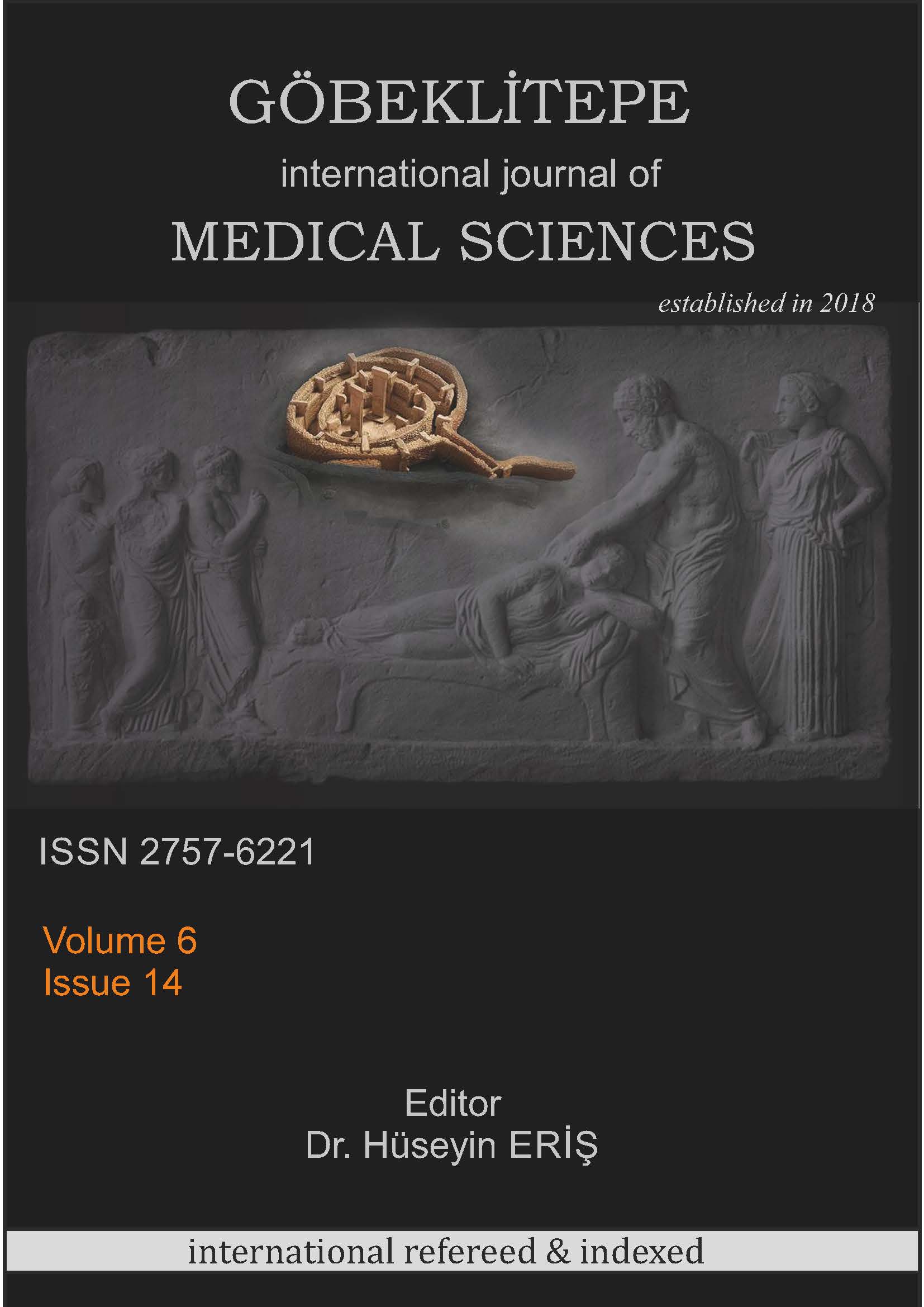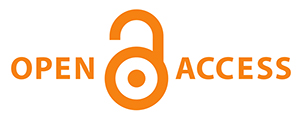INVESTIGATION OF THE EFFECTS OF THE ATTITUDES OF PARENTS OF CHILDREN WİTH CANCER TOWARDS PROTECTING THEIR CHILDREN FROM COVID-19 ON THEIR QUALITY OF LIFE AND THEIR CHILDREN'S QUALITY OF LIFE
PROTECTING THEIR CHILDREN FROM COVID-19
DOI:
https://doi.org/10.55433/gsbd/207Keywords:
Child, parents, cancer, covid-19, pandemicAbstract
This study was conducted as a descriptive, correlational and cross-sectional study in order to examine the effects of the attitudes of parents who have children with cancer to protect their children from COVID-19 on their quality of life and their children's quality of life. This study was conducted with 160 children aged 7-18 years and their parents, who were treated in the pediatric oncology-hematology clinic of a university hospital. In the collection of research data; Sociodemographic Information Form, Parents' Attitudes Towards Protecting Their Children from COVID-19 Scale (PAS-CV19S), WHOQOL-BREF(TR) World Health Organization Quality of Life Scale Turkish National Short Version, KINDL Scale Oncology Module were used. In the analysis of the research data, mean, percentage calculations and correlation analysis were used. The PAS-CV19S total score average of the children and parents participating in the study, general health, mental health and preventive behaviors sub-dimension score averages were 104,16 + 12,32, 34,00 + 6,08, 22,60 + 2,60 ve 47,56 + 5,87, respectively. WHOQOL-BREF physical well-being, mental (mental) well-being, social relations and environment sub-dimension mean scores were 20,22 + 2,48, 17,21 + 1,81, 7,38 + 1,47 ve 25,82 + 2,95 respectively, and the total mean score of the KINDL Scale, physical, mental, social and treatment sub-dimension mean score was 12,95 + 2,63, 16,51 + 2,71, 11,32 + 5,71, 29,26 + 4,79 ve 69,89 + 8,75 respectively. No correlation was found between PAS-CV19S total score and quality of life sub-dimensions (p>0,05). This study is a study that shows that parents of children with cancer have a very high attitude towards protecting their children from COVID-19, and that their own quality of life and their children's quality of life are quite low.
References
Darcy L, Knutsson S, Huus K, Enskar K. The Everyday Life of the Young Child Shortly After Receiving a Cancer Diagnosis, From Both Children’s and Parent’s Perspectives. Cancer Nurs. 2014;37(6):445–56.
Flury M, Caflisch U, Ullmann-Bremi A, Spichiger E. Experiences of Parents With Caring for Their Child After a Cancer Diagnosis. Journal of Ped Oncol Nurs. 2011;28(3):143–53.
Semple CJ, McCance T. Parents' experience of cancer who have young children: a literature review. Cancer nursing. 2010; 33(2): 110-8.
Kotecha RS. Challenges posed by COVID-19 to children with cancer. Lancet Oncol. 2020;21(5):e235.
Darlington AE, Morgan JE, Wagland R, Sodergren SC, Culliford D, Gamble A, et al. COVID‐19 and children with cancer: Parents’ experiences, anxieties and support needs. Pediatr Blood Cancer. 2021 Feb 21;68(2).
Jiao WY, Wang LN, Liu J, Fang SF, Jiao FY, Pettoello-Mantovani M, et al. Behavioral and Emotional Disorders in Children during the COVID-19 Epidemic. Journal of Pediatrics. 2020; 221:264-266.e1.
Pars H. Children in COVID-19 Pandemic. Journal of Hacettepe University Faculty of Nursing. 2020; 7:66–75.
Rosenthal R. The Handbook of Research Synthesis. Cooper H, Hedges L, editors. NewYork: Russell Sage Foundation; 1994. 231–244 p.
Altay N, Arpacı T, Toruner EK. Kanser tanısıyla izlenen adölesanların algıladıkları ebeveynlik tutumları ve benlik saygıları arasındaki ilişki. Psikiyatri Hemşireliği Dergisi. 2020;11(4):298–305.
Bozkurt G, İnal S, Yantiri L, Alparslan Ö. Relationship Between Coping Strategies, Religious Attitude, and Optimism of Mothers of Children With Cancer. Journal of Transcultural Nursing. 2019; 30(4):365–70.
Lemos MS, Lima L, Silva C, Fontoura S. Disease-related Parenting Stress in the Post-treatment Phase of Pediatric Cancer. Compr Child Adolesc Nurs. 2020;43(1):65–79.
Gerçeker G, Özdemir B, ÖzdemirE, Bektas M. Ebeveynlerin COVİD-19 Korkusu Çocuklarını COVİD-19’dan Korumaya Yönelik Tutumlarını Etkiler mi? Psikometrik ve Korelasyonel Bir Çalışma. In: Sağlıklı Büyüyen Çocuk Kongresi. İzmir; 2020.
Eser E, Fidaner H, Eser SY, Fidaner C, Elbi H. Derivation of response scales for WHOQOL TR: The effect of the level of education on the use of Visual Analog Scales. Eur Psychol. 2000;5(4):278–84.
Offord DR, Boyle MH, Szatmari P, Rae Grant NI, Links PS, Cadman DT, et al. Ontario Child Health Study: II. Six-Month Prevalence of Disorder and Rates of Service Utilization. Arch Gen Psychiatry. 1987;44(9):832–6.
Ergin D, Eser E, Kantar M, Ekti Genç R. Psychometric Properties of the Oncology Module of the KINDL Scale: First Results. Journal of Pediatric Oncology Nursing. 2015;32(2):83–95.
van Schoors M, de Mol J, Morren H, Verhofstadt LL, Goubert L, van Parys H. Parents’ Perspectives of Changes Within the Family Functioning After a Pediatric Cancer Diagnosis: A Multi Family Member Interview Analysis. Qual Health Res. 2018;28(8):1229–41.
Rosenthal DM, Ucci M, Heys M, Hayward A, Lakhanpaul M. Impacts of COVID-19 on vulnerable children in temporary accommodation in the UK. Lancet Public Health. 2020;5(5): e241–2.
Nerli RB, Adarsh S, Manas S, Shridhar G. Pediatric Blood & Cancer COVID-19 pandemic: A challenge to a child with cancer. Pediatr Blood Cancer. 2020; 67(9):1–2.
Rashi BS, Pal S, Ganguly SS, Biswas SK. Parenting children with cancer: Impact assessment on quality of life using World Health Organization quality of life tool-BREF tool. Int J Med Sci Public Health.2018; 7: 225-8.
Harputluoğlu N, Özdemir SA, Yılmaz Ü, Çelik T. Evaluation of primary caregiver parents' quality of life in pediatric palliative care with the WHOQOL-Bref (TR). Turkish Archives of Pediatrics. 2021; 56(5): 429.
Yildiz GK, Yildiz S, Yoruk MA, Sevgen S. A tablet game or training booklet? Two methods for evaluating symptom management and quality-of-life of children receiving chemotherapy. European Journal of Oncology Nursing. 2022;61: 102190.
Ergin D, Eser E, Kantar M, Ekti Genç R. Psychometric properties of the oncology module of the KINDL scale: first results. Journal of Pediatric Oncology Nursing. 2015;32(2): 83-95.
Crespo C, Santos S, Tavares A, Salvador Á. “Care that matters”: Family-centered care, caregiving burden, and adaptation in parents of children with cancer. Families, Systems and Health. 2016;34(1):31–40.
Long KA, Marsland AL. Family Adjustment to Childhood Cancer: A Systematic Review. Clin Child Fam Psychol Rev. 2011 Mar;14(1):57–88.
Hovén E, Grönqvist H, Pöder U, von Essen L, Lindahl Norberg A. Impact of a child’s cancer disease on parents’ everyday life: a longitudinal study from Sweden. Acta Oncol. 2017;56(1):93–100.
Downloads
Published
How to Cite
Issue
Section
License
Copyright (c) 2023 Göbeklitepe Sağlık Bilimleri Dergisi

This work is licensed under a Creative Commons Attribution 4.0 International License.




